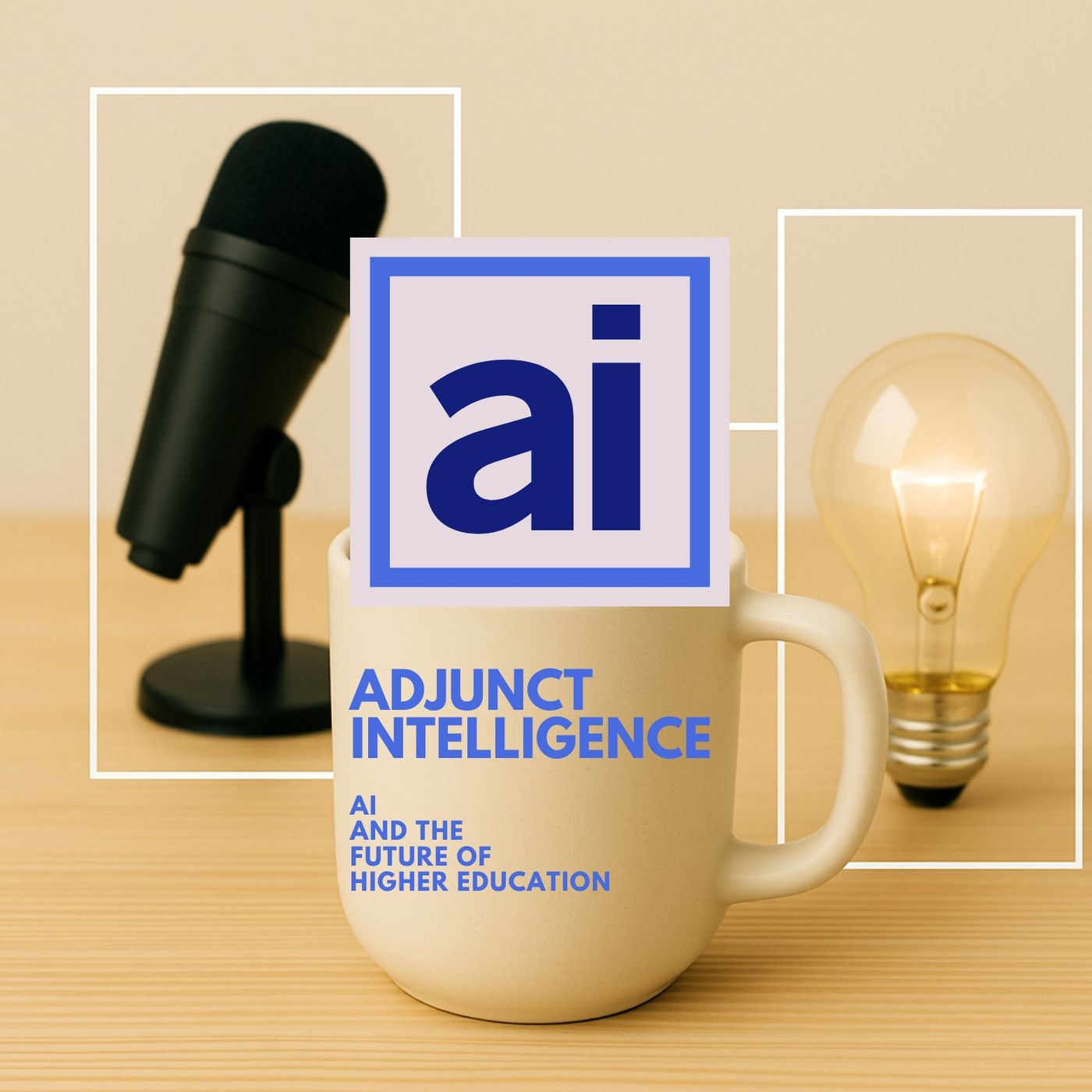From GPT-5 to Disposable Software The Next Higher-Ed AI Cheat Code | Adjunct Intelligence Ep14
Update: 2025-08-24
Description
GPT-5 arrived with sky-high expectations—benchmarks crushed, hype everywhere. Yet within two weeks OpenAI quietly rolled back to older models. Why? In this episode, Dale and Nick unpack why a breakthrough model stumbled in the real world, and why that matters for higher education. We move beyond the hype cycle into something more practical: disposable, agent-driven software you can spin up in minutes—apps that fit you, not the other way around. Think of it as an AI cheat code for your work in higher ed: faster pilots, personalized learning tools, and classroom-ready experiments without waiting for IT. If you’ve felt “behind” or unsure how to get started, this episode gives you proof, stories, and actions you can try Monday morning.
We highlight three breakthroughs shaping how AI lands in education:
Together, these show AI isn’t just smarter chat—it’s edging toward tools that produce artifacts, not just words.
Segment Breakdown
🎙️ Adjunct Intelligence is the weekly briefing for higher-ed professionals who want AI as a cheat code—not a headache.
Every episode:
• Real tests of AI tools in education and professional workflows
• Fast, Monday-morning actions you can actually try
• Clear signal through the noise (no hype, no jargon)
👉 Subscribe on [YouTube] | [Apple Podcasts] | [Spotify]
👉 Share this with a colleague who still says “I’ll figure AI out later”
👉 Join the conversation on LinkedIn with #AdjunctIntelligence
Stay curious. Stay intelligent. Stay the human in the loop.
We highlight three breakthroughs shaping how AI lands in education:
- GPT-5’s Model Router – Instead of one fixed model, GPT-5 quietly decides whether your request needs speed, reasoning, or tool integration. That’s good news for educators: imagine asking for a quick glossary versus a full lesson plan. The system adapts without you learning model names. Action: try phrasing prompts with “think step-by-step” and notice how the output changes.
- Agent-Centric Software – Forget clunky apps. AI agents now stitch together data flows, interfaces, and logic around you. Dale’s examples: a Vietnamese travel buddy app, a crisis-simulation training tool, even a scavenger hunt experience. Action: write one 20-word prompt this week for a disposable app idea you’d normally need months to commission.
- DeepMind Genie 3 – Text-to-3D interactive worlds at 24fps. Think history students walking through Gettysburg or science labs where weather conditions shift mid-experiment. Still in research preview, but worth tracking. Action: bookmark it for when pilot access opens—this could be your future teaching environment.
Together, these show AI isn’t just smarter chat—it’s edging toward tools that produce artifacts, not just words.
Segment Breakdown
- Why GPT-5’s retreat matters for education – A leap in benchmarks, but backlash showed UX > hype. (00:00 –07:40 )
- Proof of disposable apps in action – From lecture-note generators to music samplers, Dale demos personal builds. (07:40 –15:00 )
- AI timelines vs university timelines – Carlo Iacono maps 5-year disruptions in higher ed. (15:00 –18:30 )
- Are we in an AI bubble? – $360B spend in 2025 echoes the dot-com boom. (18:30 –23:00 )
- Genie 3 & immersive learning – Why text-to-world generation could reshape teaching. (23:00 –26:30 )
- Disposable software as a new era – Agent-centric apps as your AI cheat code. (26:30 –36:00 )
🎙️ Adjunct Intelligence is the weekly briefing for higher-ed professionals who want AI as a cheat code—not a headache.
Every episode:
• Real tests of AI tools in education and professional workflows
• Fast, Monday-morning actions you can actually try
• Clear signal through the noise (no hype, no jargon)
👉 Subscribe on [YouTube] | [Apple Podcasts] | [Spotify]
👉 Share this with a colleague who still says “I’ll figure AI out later”
👉 Join the conversation on LinkedIn with #AdjunctIntelligence
Stay curious. Stay intelligent. Stay the human in the loop.
Comments
In Channel





